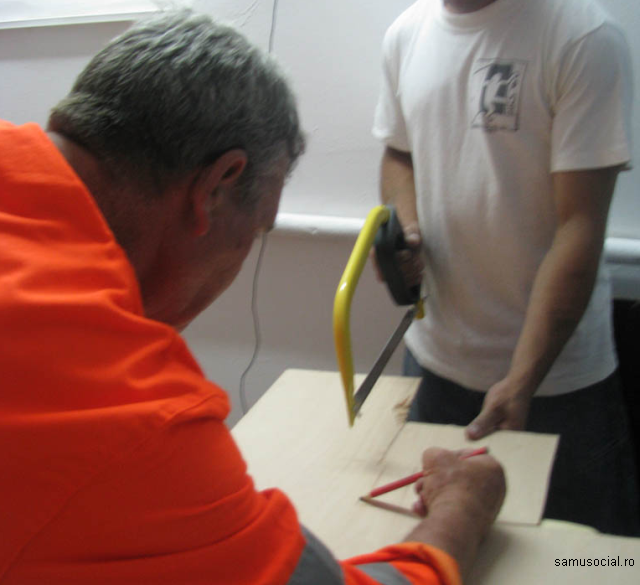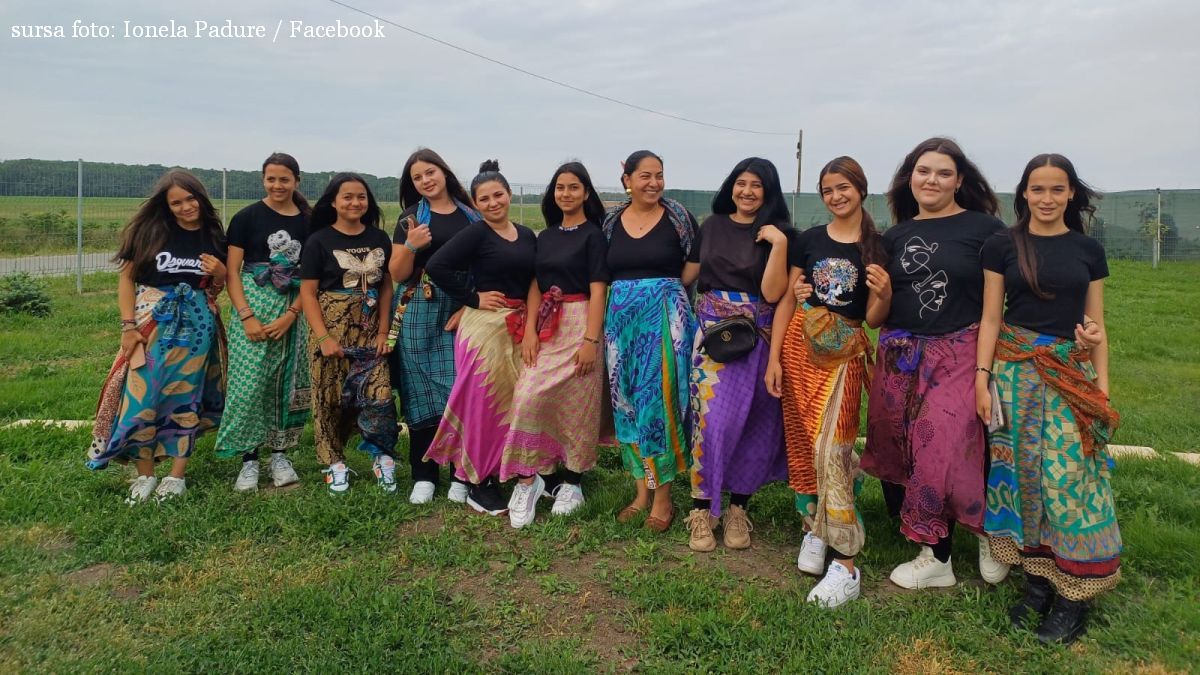Opportunities for the Underprivileged
Workshops without Borders is one project that helps integrate homeless people.

Christine Leșcu, 26.11.2014, 14:07
Consumed by our everyday routines, we sometimes pass street people on our way to work, more often than not either deliberately ignoring them or being unable to conceal our disgust. We refer here to homeless people in Bucharest and other cities in Romania. Their story is one of failure, one that can happen to anyone and one that can be easily surpassed with the help of others. But how can we truly help these people? A simple gesture of mercy may, for instance, help them get their lives back on track. Patrick Ouriaghli, the chairman of “Workshops without Borders” Association, told us more:
“In 2009 we set up a vocational integration workshop focusing on economic activities, jointly with the “Samusocial” Foundation. Over the last 5 years we have been providing jobs to underprivileged people who are referred to us by Samusocial Foundation, the Anti-Drug Agency, foster care centers or probation services. These bodies have contacts with people who are socially excluded or marginalized for various reasons: they are homeless, they are former drug addicts, orphans, ex-convicts and so on. We are talking about people who cannot basically find a job on the conventional labour market. We hire them legally in our workshops for a period of two years, during which time they can familiarize themselves with the standards of the labour market”.
Catalin is a former military who is now working for a private security company. His professional and personal problems made him lose his home.
“Last year I was living in a shelter in Drumul Taberei district, together with another colleague from work. But now I don’t live there anymore, this was the very reason why I came to the workshops: to find a decent home, make a living and prepare for vocational re-qualification”.
A stable job and the opportunity of learning a new trade appeal strongly to underprivileged people. Here is a former electrician who now works at “Workshops without Borders”.
“I came here from a community center, Casa Ioana. I used to live in a house nationalized by the communist regime, which was meanwhile returned to the state. I rented a place, but I couldn’t find any work, or I didn’t always get my paychecks on time. I want a stable job in order to be able to take care of my family and four children. My wife is a cleaner in four apartment buildings. We moved out from Casa Ioana three months ago”.
Underprivileged people who seek help with Workshops without Borders are first handed a minimum wage salary, a warm meal at lunchtime and a public transport subscription. Here they get involved in all sorts of activities: they repair old computers, recycle advertising banners and so on. Therefore they gain new abilities that might help them get a job elsewhere and adapt to a certain rhythm necessary to integrate socially. But getting back their self-esteem seems to be the top priority, Patrick Ouriaghli believes.
“The hardest thing is for them to be able to trust themselves once again, to stop seeing themselves as beneficiaries, as a burden for the others, as being part of this underprivileged category, and to see them as normal people once again. Many of them used to have good families and salaries, but lost them to alcohol or other issues. The hardest thing is to help them regain their confidence. We use economic activities as instruments to help them regain trust. For instance, we have workshops dealing with repairing old computers. Here they take computers to pieces, repair them, salvage components and donate them to schools, foster care homes or other public institutions nationwide. Therefore they get a feeling they serve a purpose, that they can build a future for themselves, that they aren’t useless, that they have something good going on and that people are grateful for their work”.
Beclean is a small town in Bistrita-Nasaud County. Here the authorities have worked up an alternative way to help 10 homeless people in the community, with the help of all the churches in the region. Nicolae Moldovan, the mayor of Beclean, told us more:
“We have built a social welfare center for the community, with six large, capacious rooms. People would have to share the room with two or three other people though. The Town Hall will bear all utility-related expenses. In order to provide daily meals or spiritual guidance we have struck a partnership with all the 12 churches in the town. On a weekly basis, each church must take care of these people the best they can, either by donating clothing or by offering spiritual guidance. My recommendation was to give them one warm meal or even three meals a day. We also have a partnership with the local hospital, in order to ensure the medical assistance for these people”.
Everyone in Beclean knows these people. They were once members of the community, but now they need help to re-gain their status. At first others need to help them get on their feet, so as to later on be able to fend for themselves. Here is the mayor of Beclean Nicolae Moldovan.
“Step by step, I believe we can re-integrate these people into society, as they finally acknowledge people helping them. All this time when we couldn’t help them, they might have felt left out, abandoned. But now that the entire community is making efforts to help them, I believe they can have their lives back”.
The material and moral support of others, as well as re-gaining their own self-sufficiency, are key to living a normal life for the thousands of people without a home.






























